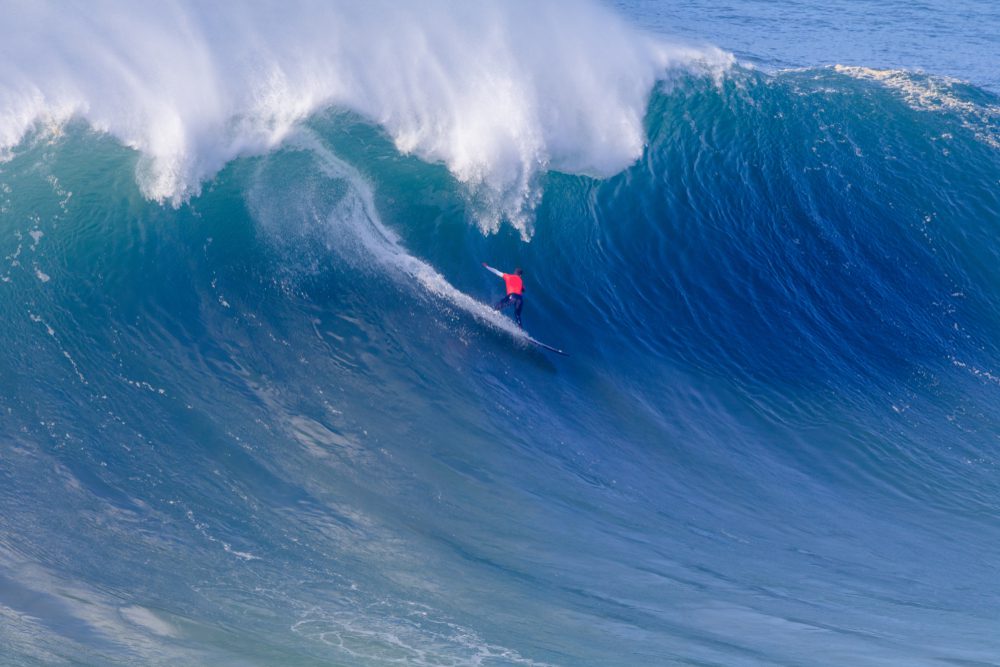The California Coastal Commission stated in a letter this week that a surfing competition in Los Angeles cannot prevent transgender women from participating in its women’s division.
The commission’s executive director, Kate Huckelbridge, expressed in the letter to the organizer of the American Longboard Association, Todd Messick, that excluding transgender athletes from surf competitions in California violates public access policies of the Coastal Act and discriminates against transgender surfers. Los Angeles Times reported.
The letter was prompted by the case of Sasha Jane Lowerson, an Australian surfer and surfboard designer who was born intersex and identifies as a proud transgender woman. Lowerson contacted Messick before attempting to enter the Huntington Beach Longboard Pro competition, but received no response. The InertiaAfter previously competing in men’s events, Lowerson made history as the first transgender woman to win a longboard competition in 2022. She has also collaborated with Surfing Australia to establish guidelines for the inclusion of transgender surfers in events and clubs.
Before applying for the Huntington Beach competition, Lowerson reached out to Messick to confirm her participation. However, Messick did not respond and instead posted a video on Instagram on April 25.
Messick mentioned in the video that he was surprised to learn about a transgender athlete entering the women’s division and stated his organization’s support of biological males and females in their respective divisions. Messick says in the video. “I didn’t realize I was gonna have to address this this soon, only into our second contest.”
He continued by stating that the organization will adhere to the rulebook, allowing born females in the women’s division and born males in the men’s division.
Lowerson expressed her surprise and disappointment at being excluded from the event in an interview with the BBC. She stressed the importance of applying all the rules rather than selectively enforcing them. In a video, Messick falsely claimed that the American Longboard Association’s policy aligned with the International Surfing Association (ISA), which allows transgender women to participate in women’s events given specific testosterone levels. Sabrina Brennan, from Surf Equity, brought this misinterpretation to Messick’s attention, but received no response.
Brennan then reached out to the California Coastal Commission after Messick’s lack of responsiveness. The commission confirmed that the American Longboard Association’s policy not only violates California’s Coastal Act but also contradicts the policies of the ISA and the World Surf League regarding transgender inclusion.
Huckelbridge’s letter on May 7 reiterated that the organization's policy infringed on California’s Coastal Act and conflicted with the ISA and World Surf League’s guidelines for transgender inclusion, having discussed the matter with Messick earlier that day.
“During our discussion, you agreed to abide by the ISA Transgender Policy Rule and permit transgender women to participate in the women’s division if they can show that they meet the criteria in the ISA policy,” Hucklebridge informed Messick.
“Competitions in state waters must be conducted in a legal way that is not biased based on gender,” a representative for the California Coastal Commission told the BBC.
According to the Los Angeles Times, Lowerson’s name was not listed among the surfers competing in Huntington Beach Longboard Pro’s women’s division released on Thursday. Lowerson mentioned The Inertia earlier this week that she chose not to take part in the event.
Lowerson told the BBC that she disagrees with the argument that trans women have unfair advantages over cis women. Surfing, she said, is “not a race, it’s about style, flow, grace. As a longboarder, it’s more like ballet on a wave.”
She told The Inertia that she doesn’t aim to be a professional surfer and doesn’t want to take another athlete’s place in competitions. “I don’t go in them [contests] to win,” she said. “I go in them to hang out and meet people.”
However, she told the BBC that she’s “inadvertently become a poster child for trans women in surfing.”
“Sports is about community,” Lowerson said. “It’s about sharing and having fun with other like-minded people, and the fact we’re losing sight of that is really sad.”









